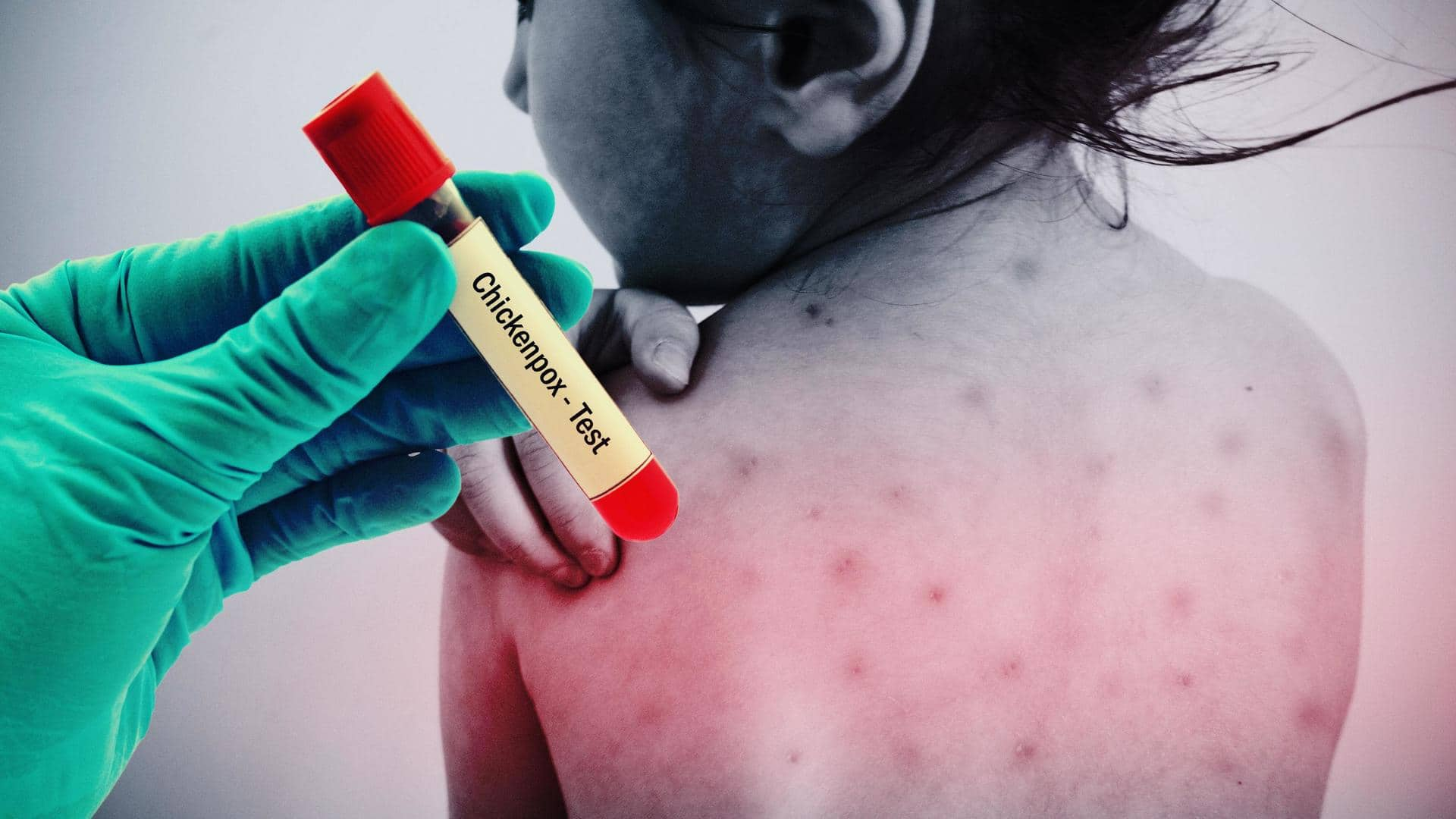
Chickenpox: Meaning, causes, symptoms, and treatment
What's the story
Chickenpox is a common infection that is caused by the varicella-zoster virus. It is highly contagious, especially for those who haven't had this disease before or are not fully vaccinated against it. It causes the skin to itch and develop rashes and blisters that pop and leak. From its meaning to treatment, here is everything you should know about chickenpox.
Context
Here's what our expert says
Chickenpox is a vaccine-preventable viral illness of childhood, caused by the varicella-zoster virus. It presents with fever and fluid-filled rashes/blisters which start on the trunk and then involve the whole body. It is a very contagious disease where the virus spreads from the infected to susceptible individuals by droplets, body fluids, and infected fomites. Treatment is mainly symptomatic.
Risk
Children below the age of two are the most vulnerable
Kids below the age of two are at a higher risk of getting chickenpox. People who haven't been affected by this virus before are also equally vulnerable. Not just that, if you have not been vaccinated, your chances of suffering from this ailment doubles up. You are also more likely to catch it if your immunity is weak or have an underlying health condition.
Symptoms
Fever and rashes are some signs to watch out for
Chickenpox causes itchy rashes and blisters all over the body that usually show up after 10 to 21 days of contact. These spots last for approximately five to 10 days, including new bumps and blisters that continue to appear. Those down with chickenpox may also experience loss of appetite, headache, body aches, fever, and fatigue. During these stages, isolation is recommended.
Transmission
Chickenpox can transmit through sneezing, coughing, mucus, or saliva
Chickenpox is highly contagious, to the extent that a patient can transmit it to a healthy human in only 48 hours! The disease can be transmitted through droplets in the air caused by sneezing or coughing. Additionally, it can be transmitted via mucus and saliva too. In fact, coming in contact with the fluid from the blisters can also cause this disease.
Safety
Don't burst blisters or bath with soap during chickenpox
When down with chickenpox, avoid touching, popping, or scratching the blisters, as they can leave a permanent mark on the affected area. They can also spread to other parts of the body, aggravating the infection further. Additionally, you should also refrain from using any soap or shampoo while bathing as it can spread rashes to other body parts.
Treatment
Anti-viral medicines, lotions may help you recover from chickenpox
When you seek a doctor's help, they may prescribe you anti-viral medicines depending upon your condition, symptoms, age, the extent of infection, and the timing of the treatment. They may also give you a lotion to treat your blisters and rashes. Besides, you should wear loose clothes, take a cool bath, and drink lots of water to flush out the virus from your system.